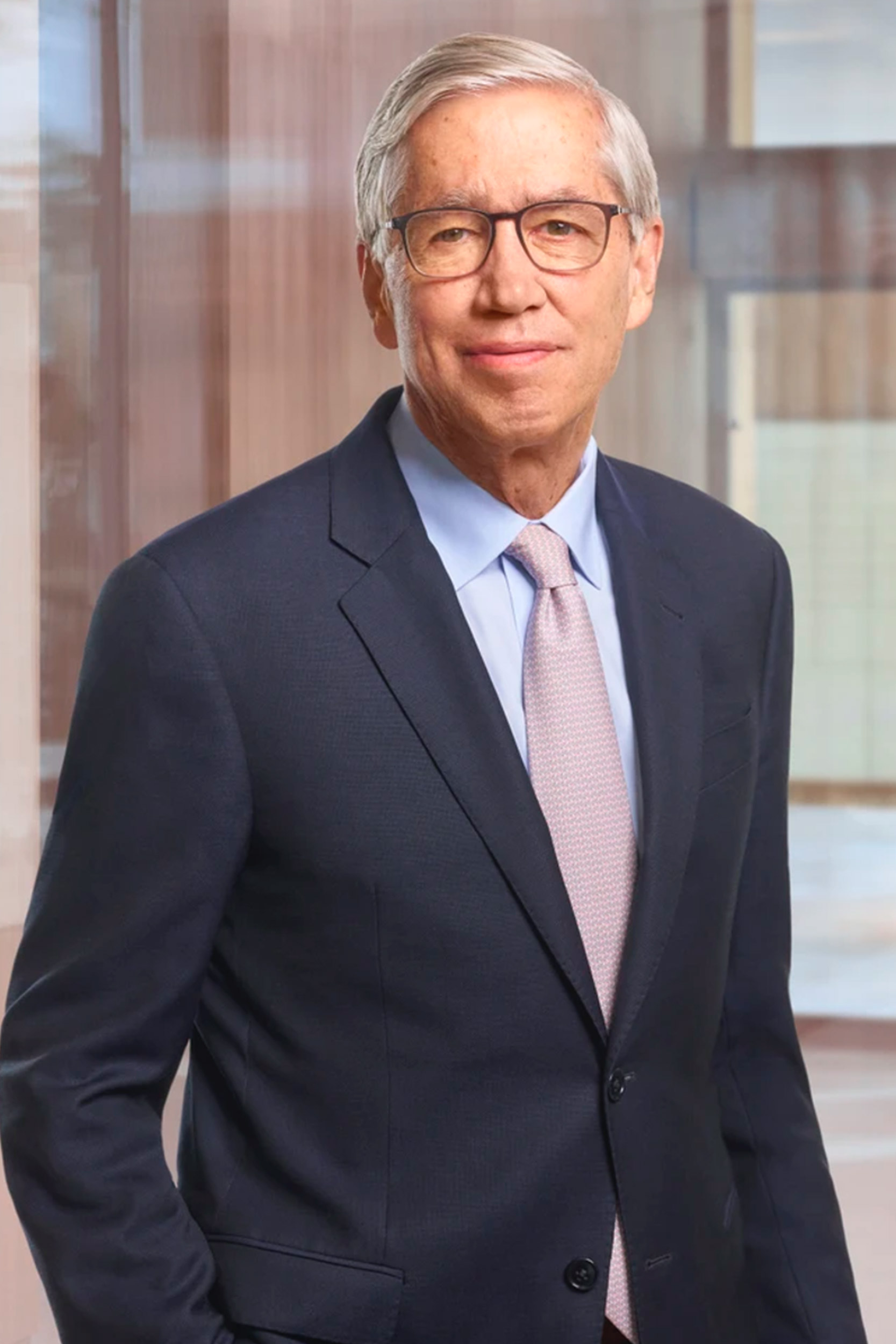
Richard P. Lifton to join Harvard Corporation
Scientist to start with governing board on July 1, succeeding Shirley Tilghman
Richard P. Lifton, a prominent leader in biomedical research and higher education, will join the Harvard Corporation this summer, the University announced Monday. A scientist and physician who is a pioneer in using genetics and genomics in understanding human disease, Lifton has served as the 11th president of The Rockefeller University since 2016 and also leads that institution’s Laboratory of Human Genetics and Genomics.
“Rick is known to colleagues as a person of deep integrity, extraordinary intellectual curiosity and creativity, exceptional incisiveness, and sound judgment,” said President Alan M. Garber and Senior Fellow Penny Pritzker in a message to the Harvard community. “He has dedicated his life’s work to the advancement of higher education and the progress and promise of science, embracing and embodying the pursuit of academic excellence. We look forward to welcoming Rick Lifton to the Corporation this summer, as we navigate these consequential and challenging times for our own university and others.”
“Harvard is a national treasure for its leadership in education, scholarship, and research. Its generation of new knowledge advances the betterment of humanity with global impact.”
Richard P. Lifton
Under Lifton’s leadership, Rockefeller has strengthened its position as one of the world’s preeminent research institutions, including by fostering support for new programs in basic, translational, and clinical research, constructing a new campus in Manhattan, and collaborating in the creation of Chan Zuckerberg Biohub New York. Lifton is also a champion for Rockefeller’s multidisciplinary faculty, whose members have received two Nobel Prizes, three Lasker Awards, and two Breakthrough Prizes in life sciences during his tenure.
“Harvard is a national treasure for its leadership in education, scholarship, and research. Its generation of new knowledge advances the betterment of humanity with global impact,” Lifton said. “I’m honored to join President Garber and the other distinguished members of the Corporation, and I look forward to working with them and other colleagues to ensure that Harvard sustains and enhances its exceptional contributions to society.”
Lifton’s pathbreaking research has centered around genetic material that underlies common problems in human health, including cardiovascular disease, neoplasia, kidney disease, and osteoporosis. He is especially known for his discovery of mutations in 20 genes that drive blood pressure to high or low extremes by altering renal salt reabsorption, work that has informed public health efforts and therapeutic strategies worldwide.
Lifton joined the faculty of Yale University in 1993. Over nearly a quarter-century, he served as chair of the Department of Genetics at Yale Medical School, a Howard Hughes Medical Institution Investigator, and as director of two research centers. He rose to become a Sterling Professor, Yale’s highest academic rank, and was a member of Yale’s presidential search committee.
Before being recruited to Yale, Lifton served on the faculty of Harvard Medical School from 1986 to 1993. He did his medical residency at Brigham and Women’s Hospital, where he became chief medical resident. A summa cum laude graduate of Dartmouth College, he earned an M.D. and a Ph.D. in biochemistry from Stanford University.
Across his career, Lifton has served on many boards, committees, and councils related to scientific discovery and science policy, including scientific advisory boards for the Broad Institute of MIT and Harvard and Massachusetts General Hospital. His many roles have included chairing the White House’s Precision Medicine Initiative, co-chairing the International Commission on the Clinical Use of Human Germline Genome Editing, and serving as a member of both the governing council of the National Academies and the advisory committee for the director of the National Institutes of Health. He has served on fiduciary boards and scientific advisory boards for various biotechnology and pharmaceutical companies, and he was a member of the presidential search committee for the Institute of Medicine (now the National Academy of Medicine).
“Richard Lifton is a thoughtful and highly respected leader with a profound commitment to advancing education, science, and human health,” said Vivian Hunt, president of the Board of Overseers. “His expertise in guiding a renowned research university and his extensive engagement as an admired leader and sought-after adviser within the broader biomedical field will strengthen Harvard’s governing boards. I know my colleagues are excited to work with him.”
In line with Harvard’s charter, Lifton was elected by the Corporation with the consent of the Board of Overseers. He will become a fellow of Harvard College on July 1, filling the vacancy created by the planned departure of Shirley Tilghman, an eminent life scientist and president emerita of Princeton University.
Garber and Pritzker thanked Tilghman for “having brought to the Corporation an extraordinary combination of university leadership experience, academic stature and scientific accomplishment, engagement with a wide array of other institutions, and constant devotion to higher education’s highest ideals.” They expressed their profound gratitude to Tilghman for “continuing exemplary service” that “sets a standard for us all.”
Known formally as the President and Fellows of Harvard College, the Harvard Corporation is the oldest corporation in the Western Hemisphere. Chartered in 1650, the Corporation exercises fiduciary responsibility with regard to the University’s academic, financial, and physical resources and overall well-being. With 13 members, the Corporation is one of Harvard’s two governing boards. Members of Harvard’s other governing board, the Board of Overseers, are elected by holders of Harvard degrees.




